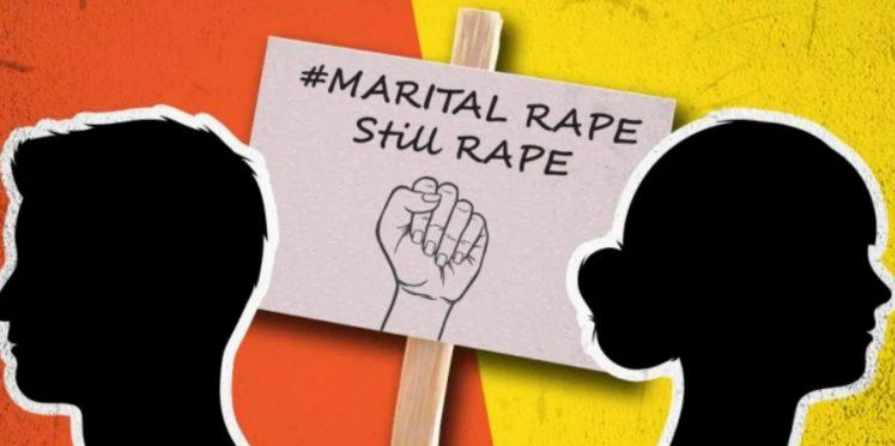Published On: 6th August, 2024
ABSTRACT
There are varied hurdles inhibiting the growth and inclusion of women lawyers in the legal profession in India. This paper considers the major challenges experienced by female lawyers which include inadequate representation and promotion opportunities, poor work-family equilibrium, prejudice/bias against women, limited networking and mentorship programs as well as unavailability of daycare facilities.
The article informs about how few women there are at top senior levels both in law firms and judiciary; in India only 11% of partners in top law firms are women. Additionally, it highlights work-life balance as an important worry especially since 70% of them identify this as a critical problem compounded further by a lack of flexible working hours alongside few affordable childcare facilities.
In the workplace too, female lawyers endure workplace discrimination, bias, and harassment that comprise unfair compensation, exclusion from significant cases and client meetings, remarking inappropriately or misbehaving by their male counterparts. Furthermore, the fact that men dominate the legal profession deters women from creating essential professional networks which would in turn hinder their career progression by hampering their access to mentorship opportunities.
The article proposes a multifaceted approach to addressing these challenges. This will involve promoting initiatives that enhance diversity and inclusion, support childcare, create networking and mentorship spaces, as well as fight discrimination and bias in the legal profession. If these are undertaken, then this can help to create an environment where women lawyers can succeed better in the Indian legal field.[1]
Keywords:
Women Lawyers, India, Work-life Balance, Discrimination, Networking, Mentorship
INTRODUCTION
In India, the legal profession has always been male-dominated. Because of gender-based constraints, career advancement, and representation opportunities have been hard to come by for women lawyers who practice in the country. Even though there is an increase in female law practitioners, there is still considerable disparity in their numbers compared with those of men in some areas such as law firm partnerships or being appointed as judges of high court divisions. The difference between these highlights is systemic difficulties continuation of sexist inequality as well as inhibition of the career development of woman attorneys.
In India, female advocates face many challenges that may prevent career growth and hinder professional growth in general. These difficulties cut through the different aspects of law ranging from a few of them holding leadership posts to having rare opportunities to rise through the ranks while coping with home-job struggles. Furthermore, pervasive issues of discrimination and bias exacerbated by limited access to professional networks and mentorship present an ongoing challenge, especially for women in the legal profession.
It is very important that these difficulties are solved because they affect not only individual female advocates but also the entire Indian law professional arena about various aspects of diversity and inclusivity. More women-friendly legal spaces would facilitate the emergence of a stronger and more creative law sector that is able to meet the different needs of its clients and society at large. Promoting gender diversity will enable the legal sector to tap into a broader spectrum of perspectives and life experiences hence providing profound and sustainable legal solutions.
The content of this post gives us an insight into some of the challenges that women lawyers encounter in the country, making it possible for people to understand the kind of problems they go through and perhaps try coming up with ways through which they can be overcome. It is hoped that this summary will shed a lot of light on what uniquely happens or holds them back from practicing law so that even while talking about them; we may consider making an all-embracing world that will empower other female advocates as well in this region. By examining these challenges carefully, we can find steps we can take for gender equality in order that future women lawyers will be upheld and make progress in their chosen professions.
What this exploration really entails is not limited to but some other important issues that this topic can address not just of prominence but maybe trying to start off something new. It is all about acknowledging the significant role played by female legal practitioners to make sure they speak up for themselves as well as develop their skills that may not be realized within them. We could open the doors for a justice, fairness, and dynamic legal profession in India, which is able to mirror and cater to our plural society only when the factors that make their progressive movement difficult are personally dealt with.[2]
THE LACK OF REPRESENTATION AND ADVANCEMENT
Scarcely any women lawyers can be found in top law firms or the judiciary in India. A report published by Rainmaker claims that only 6% of these entities’ partners are female. This yawning gap in leadership positions reveals the myriad challenges hindering female attorneys as they strive to move up the ladder within their profession. Not only does it limit the career development of individual women, but it also imposes an unfavorable effect on the legal profession altogether.
There are widespread repercussions from the absence of women in executive positions. Initially, it diminishes the prospects of female attorneys being seen or heard; thus, curtailing their potential to have an input into decisions or rules that govern legal matters. Ultimately the outcome is failure to incorporate varied standpoints or life occurrences necessary for a comprehensive and efficient legal sector. Having varied leadership brings more original solutions and a thorough knowledge of the requirements of an assorted customer base. The absence of a significant proportion of women in high-ranking jobs may make the legal industry keep promoting a very limited viewpoint.
Moreover, aspiring women lawyers view inadequate female representation in leadership roles as somewhat disheartening. There may be aspiring young female professionals who might see it as a path where they may not succeed due to their gender thus leading to probable loss of motivation and dreams. When this is the sentiment, it may cause women who are talented not to go for law professions as well as those dreaming about holding top-level positions in law firms, and in the process, this maintains underrepresentation cycle.
There are various reasons for gender disparity in top positions which are deeply rooted in culture and society that historically favored males in powerful and authoritative positions. Within the legal profession, women struggle largely because of hidden preferences. These preconceptions often surface in subtle forms—for example, people might assume that women are less dedicated to work because they must take care of their families at some point or make generalizations suggesting that females don’t have what it takes for trial advocacy. They may even keep women lawyers who are trying them off from advancing their careers through systemic discrimination, albeit without knowing what they are doing.
Additionally, the legal industry frequently requires individuals to work long hours and be highly committed at the expense of satisfying some societal expectations and obligations that conventionally revolve around women like looking after others and controlling the homestead. Therefore, women can find themselves in dilemmas where they are forced to choose one thing between their profession and life outside work with negative effects on their careers.
To wrap up, there is an urgent need to pay attention to how men continue to dominate senior positions in law firms in India. Clearing systemic barriers facing female lawyers has the potential of paving the way for a more just legal sector that is also rich in variety. This has a profound effect, particularly on how effective the legal profession is generally and how much it includes every woman who works in it, making it better placed to do right by both clients and society at large.
WORK-LIFE BALANCE CHALLENGE
Another major difficulty that female lawyers in India go through is balancing their need for the legal profession against that of their families according to Rainmaker’s report. The report indicates that 70% of the women who are lawyers mentioned that they were much concerned about how they will go about balancing between their work and life at home as indicated by the magnitude of the issue hindering them from leading a happy life now as career women. This concern is particularly accentuated in the legal profession given the fact that its expectations and demands are overly demanding.
The legal profession is infamous for its long working hours, high-pressure workplace, and sometimes erratic timetable, all of which can be especially difficult to deal with by women who also must take care of children as well as manage household chores. Many women attorneys have a difficult time balancing these two things since the requirement for continual commitment and availability is usually at odds with the requirements of raising a family. The conventional wisdom that women should primarily take care of children adds a demonstrated effect of another level, usually burdening them to achieve distinction in both fields concurrently.
In India, access to affordable and high-quality childcare options is quite limited for women lawyers. Women therefore must make their own arrangements or even assume the responsibility of looking after the children since the services are few and expensive. This lack of support may affect their commitment to the long hours they need to put in for their legal careers and consequently their career progression. Lack of sufficient childcare may make it difficult for women-in-law to participate in late-night meetings, work on emergency cases, or travel for their careers all of which are usually vital for career progression.
The condition is worsened because of the want of proper help systems, for instance, friendly family policies, having children at the workplace, and workplace cultures that are supportive. Frequently, women lawyers are in places that they cannot even take note of before it dawns upon them, and they find themselves developing feelings of being out of place or even anger for sure. This absence of any backing from authorized organizations can be very hard for women having to pursue their profession and at the same time take care of the family.
The work-life balance challenge is significantly shaped by societal expectations and cultural norms. Women in many instances are supposed to choose family first before their careers therefore going against this practice would invite censure. This discourages female employees from advancing professionally or declaring their professional goals. This also goes to show that gender inequality continues because it tells us that women are less committed to their jobs based on how reliable or devoted, they should be towards their workplaces.
It is important that firms and institutions recognize the need for flexible hours when it comes to their employees’ career management. For the legal profession, achieving this might mean having part-time jobs available, letting people work from anywhere they are, and setting their own working hours. The essence of supporting work-life balance is allowing individuals to combine their personal lives with their careers by having freedom regarding working hours. Furthermore, rendering affordable and good quality childcare accessible while forming a culture that values the balance between work and life can be of great help.
The work-life balance challenge affecting female lawyers in India is quite urgent; hence requires quick intervention. This can be realized by dealing with the structural obstacles and societal expectations that have made it difficult for women to address this issue thereby transforming the legal profession into a more encompassing place where women feel cared for. “This would enable women working in the law field to thrive while improving its quality and inclusiveness and consequently benefiting all clients and society in general. All this is achievable when attorneys’ farms create working conditions that foster their staff’s need for both professional accomplishment and personal fulfillment.”[3]
DISCRIMINATION AND BIAS
In India, women who are lawyers, also experience discrimination, favoritism, and bullying at places of work leading to unfriendly workplaces (UNODC, 2008). Inequality in remuneration, missing out on crucial cases or client meetings, not to mention some raunchy remarks or actions from your fellow male colleagues are some of the examples one might encounter.
It is possible for women working within the legal industry to be seen by themselves or others as not as smart, not as hard-working, or less deserving than men because everywhere one goes there are gender biases and stereotypes that cover like a cloud. When this happens these females may miss out on promotion opportunities, get relegated to less important or high-status cases, as well have unfairness visited upon them through unfounded allegations which are then investigated. This could happen if someone finds themselves in the same situation where one comes across biased ideas against gender about male superiority and female inferiority particularly when they are with other people around them who reinforce such harmful attitudes with their own equally damaging ones”. This could also occur whenever someone is in a position with others around them who make such suggestive comments.
In addition, the legal profession is male-dominated, inappropriate behavior is allowed and can be commonly accepted. This can in turn make female lawyers feel awkwardly and threatened at their workplaces so that their chances of succeeding in their career are reduced.
It is important to criticize the problems of discrimination and bias when it comes to the issue of individual Indian women lawyers as well as to the legal profession’s own credibility and integrity. The legal industry in India can increase its supportiveness by developing a sense of decency; it can also empower female legal practitioners if they become intolerant of any form of discrimination.
NETWORKING AND MENTORSHIP CHALLENGES
Another important challenge that female lawyers in India encounter is gaining entrance into professional circles for professional assistance. The legal sector is predominantly male, thus making establishing valuable networks and receiving advice from seasoned experts by female professionals in law quite problematic and hence obstructing their professional growth.
One of the very important things that will determine whether a lawyer succeeds in his or her job is networking. This common practice allows lawyers to make connections with other lawyers and their clients, as well as keep updated on the most recent trends within the industry. Yet some of them could miss such opportunities due to reasons such as gender differences: for example, female lawyers are generally said not to like things like after-work gatherings full of men only playing golf together.
Women lawyers may have difficulty finding experienced practitioners to provide guidance, support, and sponsorship due to the lack of female role models and mentors within the legal profession. This issue is particularly tough for females navigating the industry since they probably do not have enough mentorship opportunities or connections that might help their careers develop.
The lack of solid professional networks and mentorship opportunities can constrain the visibility and availabilities, which are accessible to female attorneys; thus, preventing them from securing top-notch litigation assignments, obtaining industry acknowledgment, or moving up to top management slots for women legal practitioners.
LACK OF CHILDCARE SUPPORT
For women legal professionals in India, particularly young mothers, not having cheap and easily available daycare is a big problem. Gender imbalance in law grows because women must choose either raising their kids or going to work due to the insufficiency of trustworthy daycare services that don’t cost too much.
Women lawyers find it particularly challenging to locate proper childcare when they need it, due to the demanding nature of the legal profession which involves long hours and uncertain times. If sanctioned parental leave by payment or on-premises consolation is not available, then finding inexpensive daycare centers is hard which are characterized by high quality, or a family-oriented legal system often serves as an obstacle in their bid to marry careers with lives.
For the legal profession in its totality, these nurtures increased gender difference, embraces sexism, and jettison talent and knowledge which leaves fairness blurred for them in choosing between family life and career. In essence what this does is, it leaves them torn between pursuing their professions as lawyers or taking care of their families thereby leading to a loss of skills and talents from legal circles at the same time maintaining imbalance within hierarchy levels at work where men dominate while women serve supportive roles both staff assistants etc. “This kind of childcare scarcity has deep implications not only for individual women lawyers but also for overall diversity as well as inclusivity within the legal profession”
Providing Childcare Support: Governments and legal organizations should aim to enhance the accessibility of low-cost and top-notch childcare facilities, this will, in turn, help female lawyers strike a work-life balance. It could be through the establishment of daycare centers within the offices, giving discounts or tax breaks on childcare fees as well as putting in place policies that accommodate parents such as paid leave for new parents and elasticity in working hours.[4]
CONCLUSION
Men have been monopolizing the legal industry in India since time immemorial, and female attorneys have not been able to overcome various obstacles, which inhibit their advancement and participation in the profession. In India, there are many obstacles to women lawyers’ career development and success from the absence of representation and progress chances to the challenges of juggling work with family and pervasive problems involving discrimination, and bias, as well as having limited access to professional networks and mentorship.
It is vital for the Indian legal system to change such that they can see, understand, and address the difficulties that women practicing law may be going through on very short notice. Just after this will women advocates see their full potential released into the profession paving a road for heterogeneity, fairness, and prosperity in the Indian lawyers.
Reference(s):
[1] https://clpr.org.in/events/clpr-occassional-talks-3-sonal-makhija-on-the-challenges-faced-by-women-lawyers-in-india/
[2] https://www.scribd.com/document/102128508/Challenges-Faced-by-Indian-Women-Legal-Professionals-Full-Report
[3] https://www.advmohitbajaj.com/the-challenges-faced-by-women-lawyers-in-india%EF%BF%BC/
[4] https://clpr.org.in/events/clpr-occassional-talks-3-sonal-makhija-on-the-challenges-faced-by-women-lawyers-in-india/




